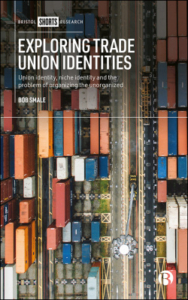With strikes in health, education, transport, the civil service and post, many have described this as another ‘winter of discontent’, echoing that of 1978–79. That winter saw the dramatic breakdown of the Labour government’s Social Contract, a counter-inflationary policy which relied upon tripartite agreement with the trade unions and employer organisations. It heralded the first government of Margaret Thatcher the following spring and everything that flowed from it.
With the next general election now two years away or less, the current Conservative government might well consider the implications of another winter of discontent for its own electoral prospects. As then, the background to industrial unrest lies in years of below-inflation wage increases, particularly in the public sector and public services. With the era of low inflation at an end, real wages falling and inflation running at 11 per cent, the highest for over 40 years, workers could only do so much belt tightening before there was an inevitable reaction.
The government’s current economic difficulties are to a significant extent of their own making. Even allowing for the pandemic and war in Ukraine, withdrawal from the European Union and last September’s self-induced financial crisis have exacerbated the situation. Boris Johnson first led the ‘Leave’ campaign and later as Prime Minister promised to ‘Get Brexit done’. The outcome was that the country turned its back on its largest trading partner without a ‘Norway-style’ or other workable agreement. The idea that the rest of the world would be queuing up to sign lucrative trade agreements with the UK has been exposed as palpable nonsense while the resulting transport problems in Kent and rising food prices are the visible manifestations of the Brexit catastrophe. This was closely followed by Truss and Kwarteng’s disastrous tax-cutting ‘dash for growth’ in their September ‘Fiscal Event’, so quickly jettisoned by Sunak and Hunt in the Autumn Statement, which did little to support those struggling the most.
The underlying myth is that the United Kingdom is a poor country and can’t afford to pay workers what they need to live, nor provide the level of public services they might expect. The truth is quite the opposite. This is one of the richest countries in the world but the gap between wealth and poverty has been growing for decades. The problem is one of distribution, with the aggregate tax burden falling largely upon working people while those most able to pay more pay the least. Many on income support are working and paying tax while legitimately claiming benefits and yet still struggle to eat and heat their homes. In reality, the state is supporting low-paid jobs, subsidising poor employers and effectively encouraging a low-wage economy, contrasting sharply with other northern European countries enjoying greater economic equality and better social provisions.
When workers face rising living costs, they will inevitably seek to restore their position. Strike action happens because the normal processes of negotiation have been exhausted or have broken down. In the public sector and in privatised public services such as transport, employers are not necessarily free to negotiate because the dead hand of government lies behind them, undermining the concept of free collective bargaining. Workers do not take strike action lightly; they lose pay every time they strike and so strike action is the last resort, rather than the first. When nurses vote for industrial action for the first time in their union’s history, the situation is clearly serious. In the current strike wave, many unions have achieved substantial majorities in favour of industrial action. Although legislation from the Thatcherite period onwards has made it harder for unions to achieve successful strike ballots, paradoxically, raising the bar has increased the legitimacy of subsequent action.
In times past, third-party interventions were frequently employed to avoid industrial action. Last minute talks at ACAS sometimes found common ground through conciliation. However, that required both parties to engage in the process and to come to the table with sufficient flexibility in their bargaining positions that a resolution could be achieved. In the 1970s, mutually binding arbitration was often seen as a benign alternative to industrial action although noticeably fell from popularity with employers in the 1980s recession, when ‘management’s right to manage’ became a popular Thatcherite mantra. There has been little interest in third-party intervention during the current strike wave, and this is surely because employers in the public sector and public services are no freer to engage in it than they are to negotiate freely.
Taken together, the government’s failure to manage the economy and control inflation together with the frustration of free collective bargaining and reluctance to engage in third-party interventions has made the current strike wave inevitable. Economic recession is also now inevitable, as acknowledged by the Bank of England. This will create unemployment, depress the labour market and reduce pay demands. As with the previous winter of discontent, the strike wave will come to an end. Eventually there will be a change of government but that will not necessarily resolve the underlying problems. The next government’s challenges will include creating a more equal society and improved social provisions within the context of more harmonious employee relations.
Bob Smale retired from the University of Brighton in 2018 after half a century of trade union membership and activism and more than 30 years of working in education.

Exploring Trade Union Identities by Bob Smale is available on the Bristol University Press website. Order here (EPUB available for £16.99, hardback £47.99).
Bristol University Press/Policy Press newsletter subscribers receive a 25% discount – sign up here.
Follow Transforming Society so we can let you know when new articles publish.
The views and opinions expressed on this blog site are solely those of the original blog post authors and other contributors. These views and opinions do not necessarily represent those of the Policy Press and/or any/all contributors to this site.
Image credit: Janine Wiedel on Alamy


